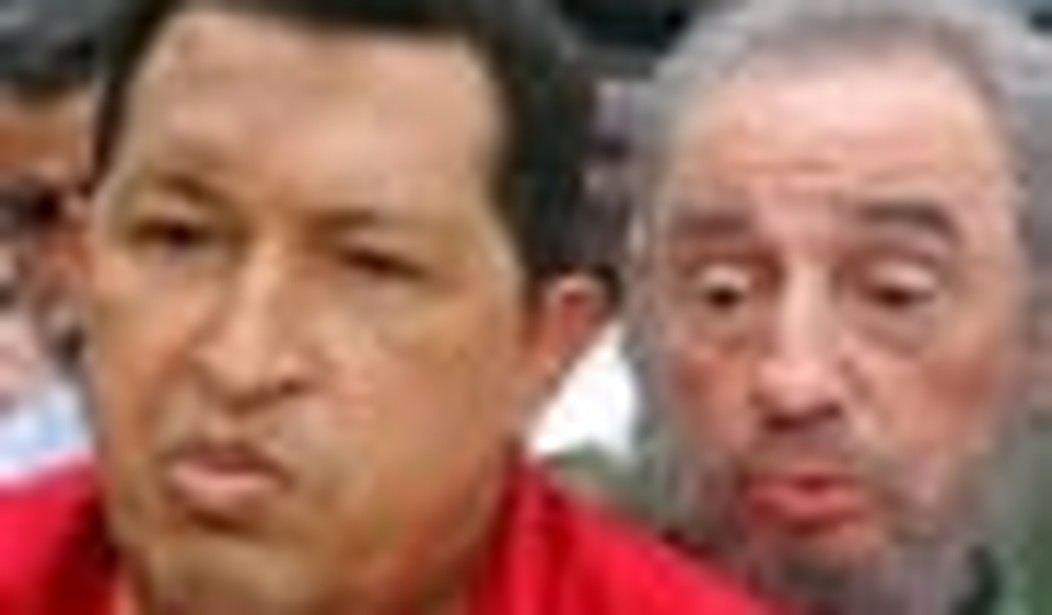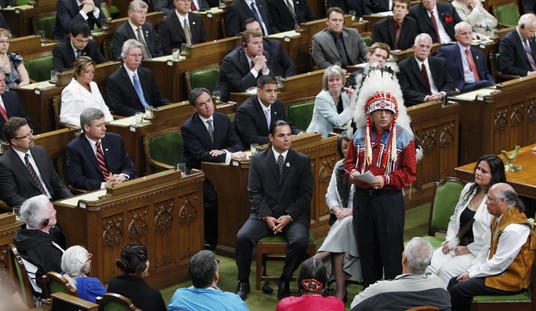The best way to understand Frontline’s latest special, The Hugo Chavez Show, is to read the interview conducted with its producer, Ofra Bikel.
In it, Bikel refers to Fidel Castro as a “hero” and claims she still doesn’t know who the real Hugo Chavez is.
Anyone who watches The Hugo Chavez Show, airing tonight on PBS stations as well as online, can give her a pretty quick answer. He’s a fraud — a leader out to help the poor who does the opposite, a man who touts his country’s democracy but does all he can to destroy it. His love for himself is second only to his lust for power. He’s also a man who will blame his ineffectiveness on the evil U.S., cynical Europe, even his own subordinates before ever questioning his own policies.
And, when the will of the people doesn’t match his own, he goes over its collective head.
But the poor love him anyway, and we’re told history will remember him for bringing the issues of the downtrodden to the table. Isn’t that a blessing?
The Hugo Chavez Show doesn’t shortchange his sizable flaws. But it does so with caution, and it gets routinely swept up by the man’s charm.
It’s hard to imagine certain world leaders, say President George W. Bush, getting such a bland excoriation for such behavior. A few people begrudgingly acknowledge that Chavez’s brand of “21st century socialism” is a disaster, but they do so without stridency, or sometimes with apology to Chavez himself.
The special is built around Aló Presidente, the leader’s weekly television show. It’s a meandering program in which Chavez sings, recites his policies, and roasts his enemies. (Chavez wouldn’t agree to be interviewed for the special.)
It’s refreshing to see such a blunt politician in action, an impulsive and chatty man who completely understands the power of the medium. But Chavez uses his bully pulpit literally, pushing around anyone who dares challenge him.
Frontline details Chavez’s early years, his flirtation with professional baseball, and his steady rise up the political ladder. He learned the power of television after an early defeat, and it soon became his most potent ideological weapon.
He had other allies, at least in the beginning. His ascension to his country’s presidency was helped, in part, by a media which gave him massive support.
Hmmm … good thing the United States is immune to that kind of partisan cheerleading during election cycles.
Venezuela was a mess when Chavez took over. The country boasted the largest conventional oil reserves in the western hemisphere, but millions lived in abject poverty. But Chavez had a plan, a mission to create a socialist utopia that would spread the wealth around.
He had more money to spread following a 2002 decree which doubled the amount of oil revenues that ended up in the government coffers. The people rebelled, and Chavez nearly lost power.
From then on, Chavez viewed any opposition — from the press, his own cabinet, even his countrymen — as something that would not stand.
Radio Caracas Television, which often broadcasts dissenting views of the regime, isn’t granted a license extension.
A normally pro-Chavez newspaper attacks the country’s health care status, incurring a quick and furious reply. Chavez rants for 50 minutes about the story on his show, scolding the editor and deploring the fact-free findings. When Frontline asked the editor about the situation, he shakily defends Chavez. Such is the trance, or fear, Venezuelans operate under.
In one breath the special details how Chavez effectively shut down his opposition, then stands back to marvel as his high re-election rates.
All the while, the Frontline narrator tells us, “as for the president, he never stops looking for solutions.” Later, it asks the obvious question, “with all the country’s wealth, why does it seem so difficult to make things work?”
Those pesky results keep telling us why. Chavez’s government set up textile cooperatives which quickly sputter, the workers completely at a loss regarding basic business practices. A housing development hailed by Chavez is an even bigger disaster.
No one epitomizes his support better than community activist Francina Urbina, who worships at the altar of Chavez and insists if not for her dear leader conditions would be much worse.
But viewers will have to wait until the final 10 minutes of the show to find the fruits of Chavez’s labor. Bikel bookends her program with a kindred spirit, someone who simply can’t believe that socialism has failed — again.
“It’s shocking to come nearly a decade on and see that most of what Hugo Chavez was railing in anger about being left with — a failed society, misery, insecurity, unequal distribution of wealth — is still here,” John Lee Anderson, a New Yorker scribe, tells Frontline.
Who could have seen that coming?









Join the conversation as a VIP Member